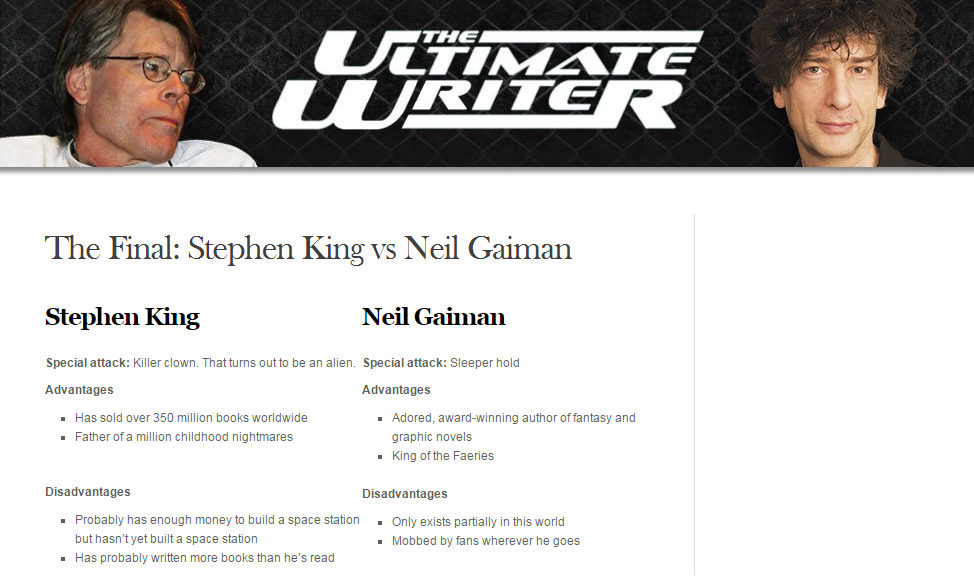Can Waterstones withstand the might of Amazon? Take a look at the market share report by MarketScout
 eCommerce
eCommerce Today, Waterstones is the biggest bookstore chain in the United Kingdom. Established in 1982 by Tim Waterstone, the company owns over 300 stores in and around Europe and is a regular and somewhat comforting sight on the British High Street.
Although many bookshops and chains were killed off during the recession, Waterstones was one of a lucky few that managed to walk away unscathed.
The recession has not been the only threat to Waterstones however, as early into the millennium, the company faced growing competition from supermarkets such as ASDA and Sainsbury’s, who unlike Waterstones, were able to sell printed books at a loss – a case highlighted by the media upon the publication of Harry Potter and the Deathly Hallows; an issue largely caused by the dissolution of the Net Book Agreement (NBA) in 1994.
But as the years pass, a new threat has emerged, one that looks likely not only to kill off Waterstones, but according to some, the entire book industry as a whole.
Speaking in 2011, Waterstones MD, James Daunt, said that:
“They never struck me as being a sort of business in the consumer’s interest. They’re a ruthless, money-making devil.”
“The computer screen is a terrible environment in which to select books. All that ‘If you read this, you’ll like that’ – it’s a dismal way to recommend books. A physical bookshop in which you browse, see, hold, touch and feel books is the environment you want.”
It takes little time to realise that Daunt is of course referring to ecommerce giant, Amazon.

Indeed, according to a report released earlier in 2014, Amazon’s domination amounts to the ‘assisted suicide’ of the book industry. According to The Bookseller, Amazon is putting publishers under great pressure to accept its new terms, which include provisos such as:
- Amazon is entitled to supply its own copies to customers via print-on-demand facilities should a book be out of stock from the publisher.
- Books cannot be sold for a lower price than Amazon’s anywhere – including on a publisher’s website.
So is Amazon’s threat that legitimate?
Certainly, as according to The Bookseller, it sells 79 per cent of all e-books, and roughly 75 per cent of printed books sold online in the UK.
We spoke to Tim Hunt of Ethical Consumer Magazine who said that:
“Amazon is now the major player in the book market. This is in no small part to its well documented aggressive stance on tax avoidance.
“The funnelling of proceeds from UK and European sales into Luxembourg, which is now under investigation by the EU, has had a devastating impact on bricks and mortar retailers such as Waterstones. Its tax arrangements are central to its business model and helps to keep prices low, undercutting many high street retailers.
“However it should be noted that Waterstones own parent company, A&NN capital managers, is itself registered in Bermuda, which appears on Ethical Consumer’s tax havens list.”
The MarketScout Report
With that in mind, we ran a MarketScout report to see whether Waterstones has the mettle to compete with Amazon in the SERPs.
As with all MarketScout reports, we have filtered out brand terms and other unnecessary websites such as Facebook.com, bbc.co.uk and en.wikipedia.org.
So let’s take a look into Waterstones’ visibility, which is accurate as of 20 November 2014.
The visibility here is interesting, as although Waterstones is found in fourth place, both Amazon UK and Amazon US are found to be above it, alongside the social networking site, Goodreads, which was bought out by Amazon in March 2013.
Since purchasing Goodreads, Amazon has been implementing additional features to the site, allowing users to add their purchased Amazon books to profiles and offering quick ways to get through to the relevant Amazon pages, should a user discover a book that they want to buy.
It is also significant to see that usedbooksearch.co.uk manages to maintain the highest average positions for its 8 top 10 rankings, despite only having 128 indexed pages, which is a great contrast when you take into account websites like Amazon.
That said, at least six of the top 15 sites sell rare and used books, and although Waterstones does offer this service in its marketplace, it is not as well-known as Amazon’s service or abebooks.co.uk – where customers can pick up used and out-of-print books for as little as 60p.
From the face of it, this section of the report indicates that Waterstones’ Off-Site Equity is pretty low and outcompeted, but it is of course worth noting that the likes of YouTube (10.4 million referring sites), Amazon and eBay are always going to outgun the likes of Waterstones.
With that in mind, it’s fair to say that the site has, compared to the average site, better Off-Site Equity than it appears to in the table above – due to additions like YouTube and eBay.
Waterstones however, is far behind the most powerful of its competitors in terms of referring domains and has very few referring government or educational domains compared to the big hitters. This is perhaps surprising for a company that sells many legal and educational textbooks and pamphlets.
Interestingly Waterstones falls considerably behind WHSmith.co.uk in terms of Trust Flow, despite a larger number of referring domains, .edu and .gov links – this suggests that WHSmith’s backlink profile maintains a core of quality sites that Waterstones can’t quite measure up to.
When it comes to topical equity, Waterstones finds itself with a decent, though not entirely competitive report. Again, once you discount YouTube and let’s face it, iTunes, Waterstones only narrowly finds itself beaten by the newsagents, WHSmith.
That said, if the company wants a fair stake in the competition, it could certainly do worse than strengthening its position in these key topical areas.
This is probably the area where Waterstones does best. It finds itself beaten only in the overall stakes by Barnes and Noble, mostly due to their weighty presence on Facebook.
It’s clear from the report that Waterstones’ social team knows exactly what they’re doing, with over 53,000 shares across leading social platforms.

By searching through BuzzSumo, we can see that the above piece of content is the most shared piece that the company has produced over the last six months.
Although it is not the most attractive article in the world, it’s a clear winner among readers, as it encompasses two leading names in the world of literature – something that fans are very likely to share.
Summary
Overall, it’s hard to say whether Waterstones will triumph over Amazon this Christmas, as although it is clear that Amazon holds sway in the SERPs, Waterstones has a great number of physical stores that always have and always will bring in readers and non-readers alike during the Christmas period.
However, if Waterstones wants to reclaim some ground online, work needs to be done to ensure that the site continues to build an authoritative backlink profile and looks to bolster its array of educational and governmental domains.
If you would like a full copy of this MarketScout report please email our team via the contact form.
